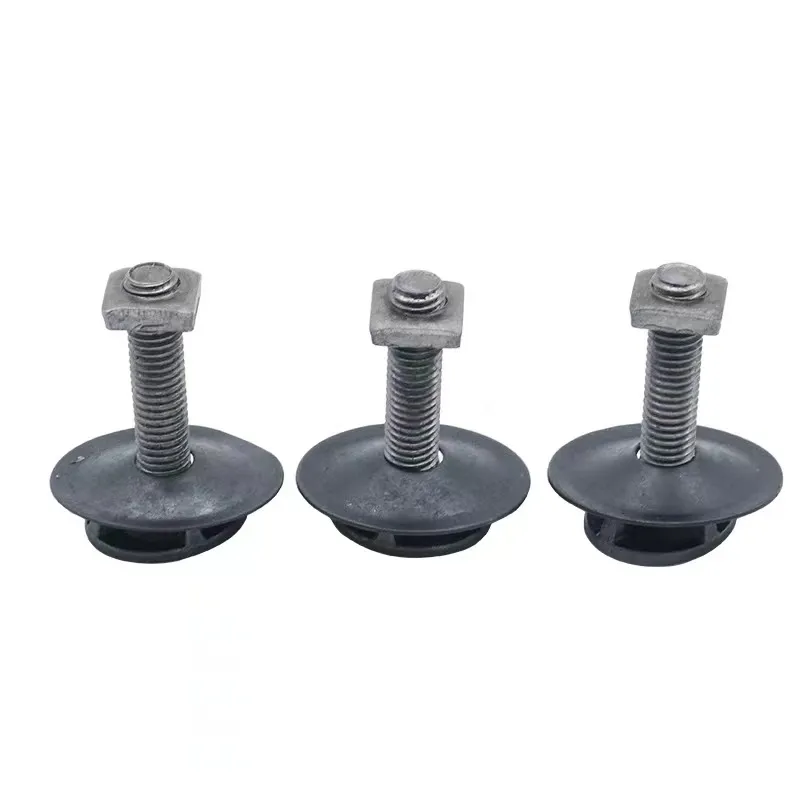

High-Quality Flat Washers for All Your Needs
Sep . 12, 2024 07:04 Back to list
High-Quality Flat Washers for All Your Needs
Understanding Flat Washers A Comprehensive Guide
Flat washers are essential components commonly used in various mechanical applications. These simple yet effective devices play a crucial role in distributing load, preventing damage to surfaces, and assisting in the secure fastening of hardware. In this article, we will explore the purpose, types, materials, and applications of flat washers, shedding light on why they are indispensable in engineering and construction.
What is a Flat Washer?
A flat washer is a thin, disc-shaped piece of material with a hole in the center, typically used with fasteners such as bolts and nuts. The primary function of a flat washer is to spread the load over a larger surface area, reducing the risk of damage to the material being fastened. By doing this, they help to prevent the bolt or screw from pulling through the surface, which is especially important in softer materials such as wood or plastic.
Types of Flat Washers
Flat washers come in various types, each designed for specific applications. The most common types include
1. Standard Flat Washers These are the most widely used and come in various sizes to accommodate different bolt diameters. They are typically made of steel or aluminum.
2. Lock Washers Although slightly different in shape, lock washers are often used in conjunction with flat washers to provide additional resistance against loosening from vibration.
3. Fender Washers These have a larger outer diameter compared to standard washers, offering greater surface area for load distribution. They are particularly useful in applications where a large area is needed to prevent pull-through.
an flat washers

Materials Used
Flat washers can be made from a variety of materials depending on the application and environmental conditions. Common materials include
- Steel Often zinc-plated for corrosion resistance, steel washers are strong and durable, making them ideal for general applications.
- Stainless Steel These washers offer superior corrosion resistance and are perfect for use in environments prone to moisture or chemical exposure.
- Plastic In instances where electrical insulation is needed, plastic washers become the material of choice. They can also be used to provide a non-marring surface.
- Copper Known for its excellent conductivity, copper washers are often used in electrical applications.
Applications of Flat Washers
Flat washers are ubiquitous in various industries, from construction and automotive to electronics and aerospace. They are utilized in machinery assembly, structural applications, and even in everyday items such as furniture. Their ability to ensure a secure fit and distribute load effectively makes them crucial in maintaining the integrity and safety of mechanical systems.
Conclusion
Flat washers may seem like a small and simple component, but their significance in engineering and construction cannot be overstated. With various types and materials available, they can be tailored to suit virtually any application, ensuring durability and safety. Understanding the role of flat washers not only aids in selecting the right components for your projects but also emphasizes the importance of seemingly minor details in engineering design. Whether you are a DIY enthusiast or a professional engineer, flat washers are essential tools in your arsenal.
Latest news
-
Hot Dip Galvanized Bolts-About LongZe|High Strength, Corrosion Resistance
NewsJul.30,2025
-
High-Strength Hot Dip Galvanized Bolts - Hebei Longze | Corrosion Resistance, Customization
NewsJul.30,2025
-
Hot Dip Galvanized Bolts-Hebei Longze|Corrosion Resistance&High Strength
NewsJul.30,2025
-
High-Strength Hot-Dip Galvanized Bolts-Hebei Longze|Corrosion Resistance&High Strength
NewsJul.30,2025
-
Hot Dip Galvanized Bolts-Hebei Longze|Corrosion Resistance&High Strength
NewsJul.30,2025
-
Hot Dip Galvanized Bolts - Hebei Longze | Corrosion Resistance, High Strength
NewsJul.30,2025

